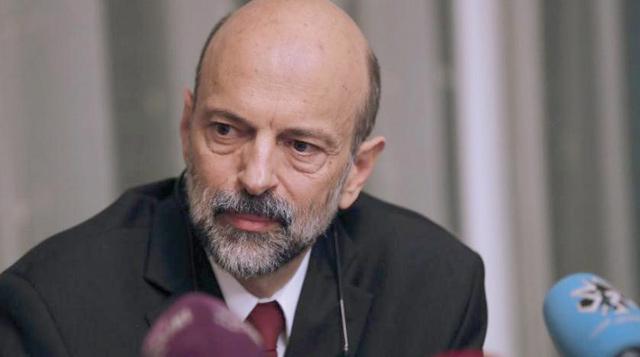You are here
‘Gov’t public approval rate dips after 100 days in office’
By JT - Sep 26,2018 - Last updated at Sep 26,2018

Prime Minister Omar Razzaz
AMMAN — A pilot study on the performance of Prime Minister Omar Razzaz’s government after 100 days of its formation showed that the optimism accompanied Razzaz’s designation has started to decline.
The study, conducted by NAMA Strategic Intelligence Solution, found that the percentage of those who believed that Razzaz’s government will be better than prime minister Hani Mulki’s went down from 81 per cent upon its inception in June to 54 per cent in September, according to a centre statement.
According to the study, conducted between September 17 and 24 involving a sample of 1,247 people representing all regions of the Kingdom, the percentage of those who think that Razzaz’s government would not be different from Mulki’s increased from 11 to 34 per cent.
Forty per cent of the respondents said that the performance of Razzaz’s government has been below expectation, while 18 per cent said that is better than what they anticipated, according to the study that was conducted with a ±2.5 per cent margin of error.
The percentage of those who were optimistic in Razzaz’s designation declined from 64 to 53 per cent, while the percentage of those who said then they were “disappointed” rose from 22 per cent upon the formation of the government to 30 per cent in September.
As for the prime minister’s ability to deal with the challenges at hand, the percentage declined from 69 to 59 per cent, while Cabinet members’ evaluation also dropped by 10 per cent from 55 to 45 per cent.
The fading of positive expectations from Razzaz’s government seems clearer when Jordanians were asked about the impact of the government’s policies on their daily lives, with 33 per cent saying that such plans had positive impacts, compared to 76 per cent who made a similar statement upon the government’s formation.
This drop in the public approval rate was coupled by a rise in the percentage of those who thought that government policies would have a negative or very negative impact on their lives, from 10 to 26 per cent.
The percentage of Jordanians who support staging protests to call for sacking Razzaz’ government remained the same at 30 per cent, while the percentage of those who encouraged more protests against increasing taxes and addressing corruption went down from 75 to 66 per cent.
Despite an active government’s campaign to deliver its messages to the public, only 15 per cent of Jordanians said they had watched at Razzaz’s speech at the University of Jordan, and only 4 per cent watched the speech till the end.
The speech left a positive impression on 55 per cent of those who listened to it in full, while 32 per cent who had a negative impression.
Fares Breizat, chairman of NAMA Strategic Intelligence Solutions, commented on the study saying that the problem lies in the failure of public economic policies over the past few years to respond to Jordanians’ needs, which led to a widening gap between the people and authorities.
Related Articles
AMMAN — Only 30 per cent of the public and 35 per cent of opinion leaders believe that the situation in Jordan is going in the right directi
AMMAN — Over 55 per cent of Jordanians and 63 per cent of opinion leaders believe that the situation in Jordan is going in the right directi
AMMAN — Over 35 per cent of Jordanians and 44 per cent of opinion leaders believe that the overall situation in Jordan is going in the right

















